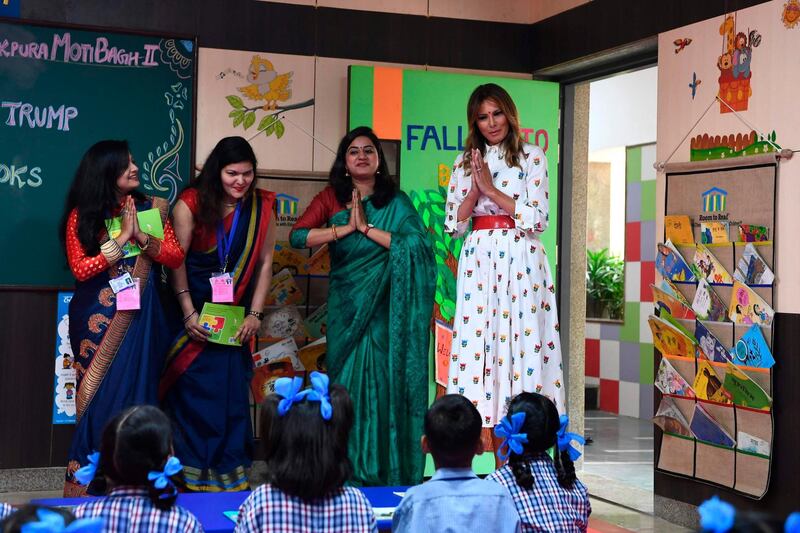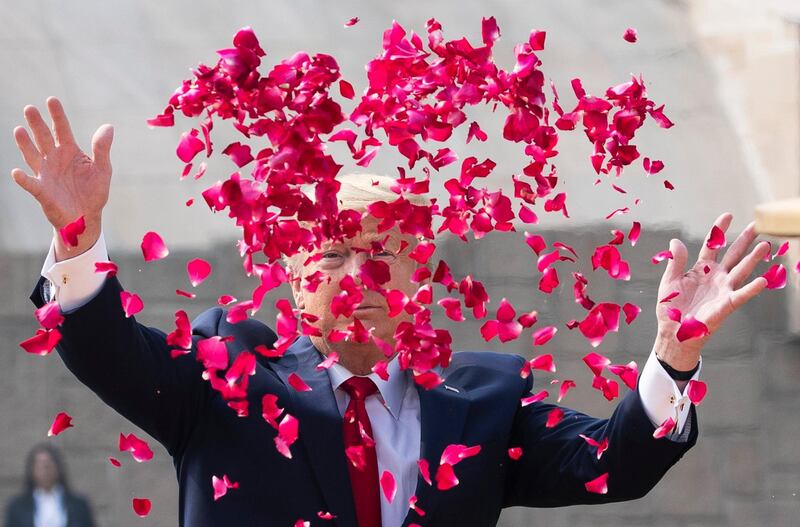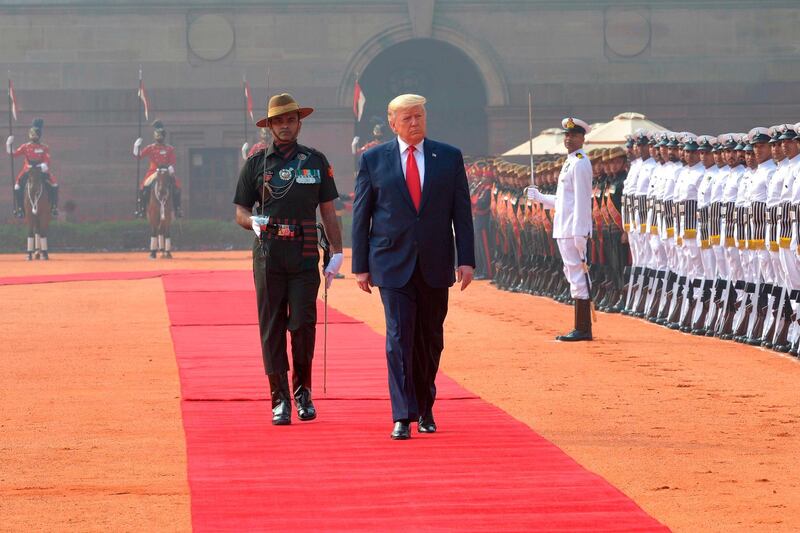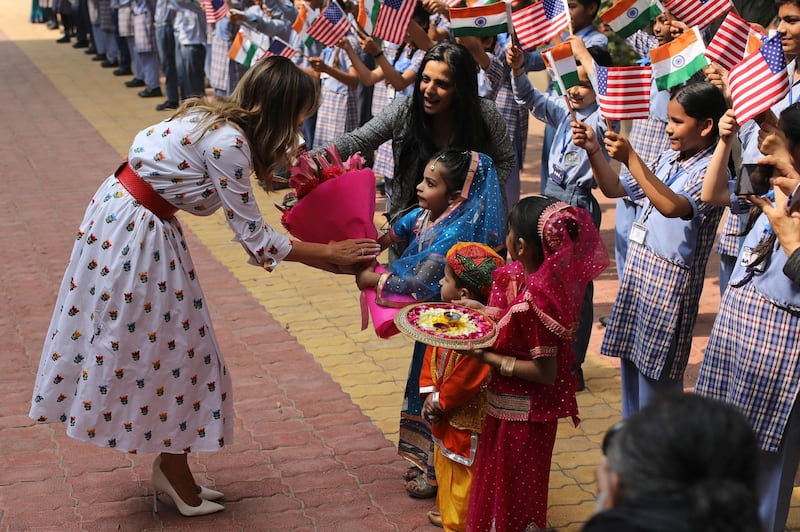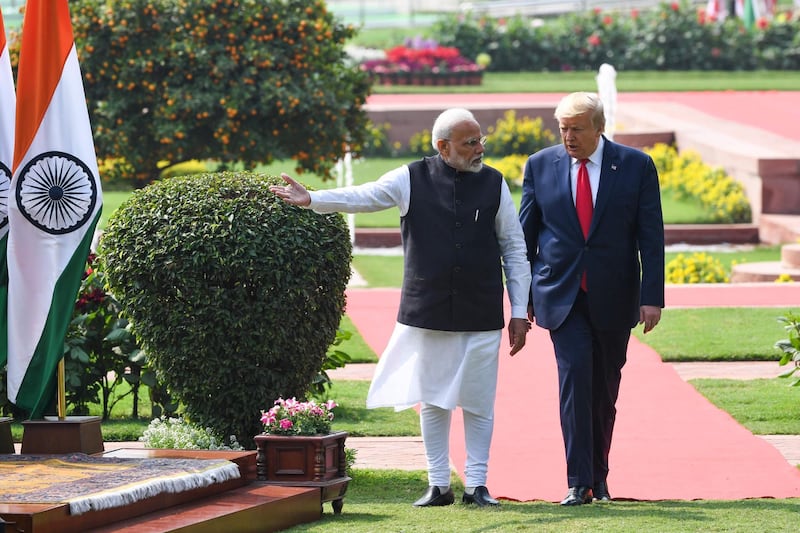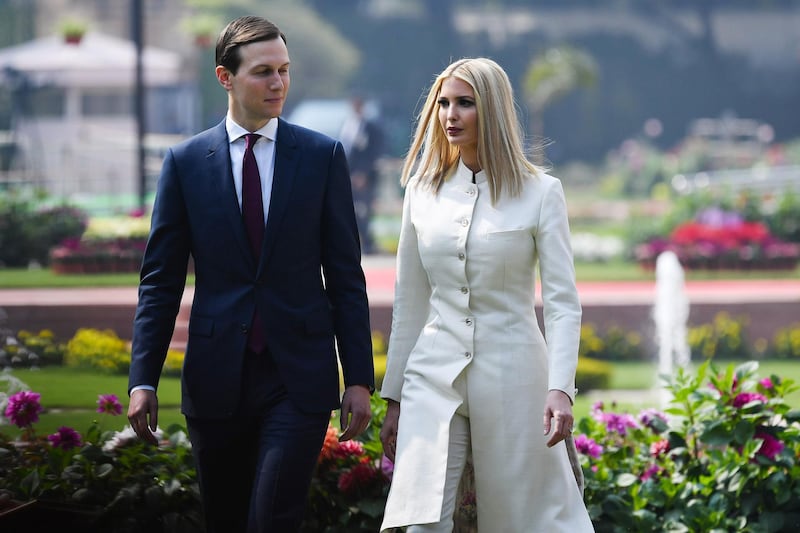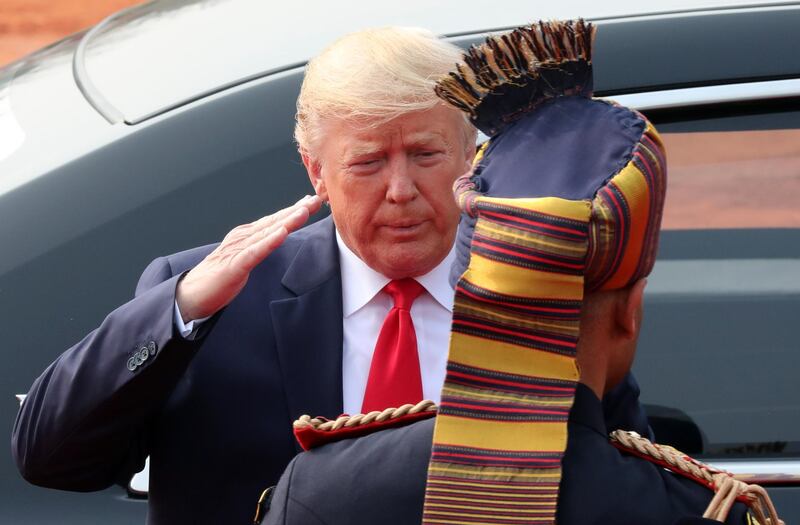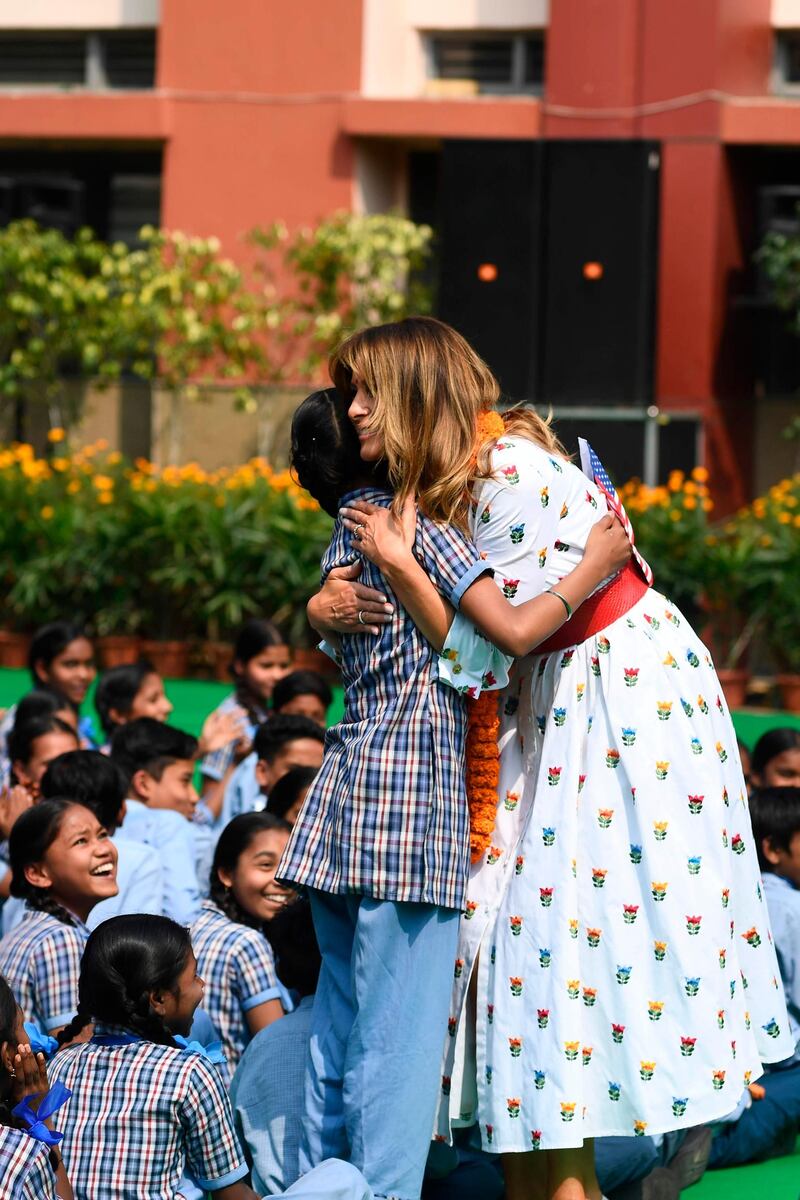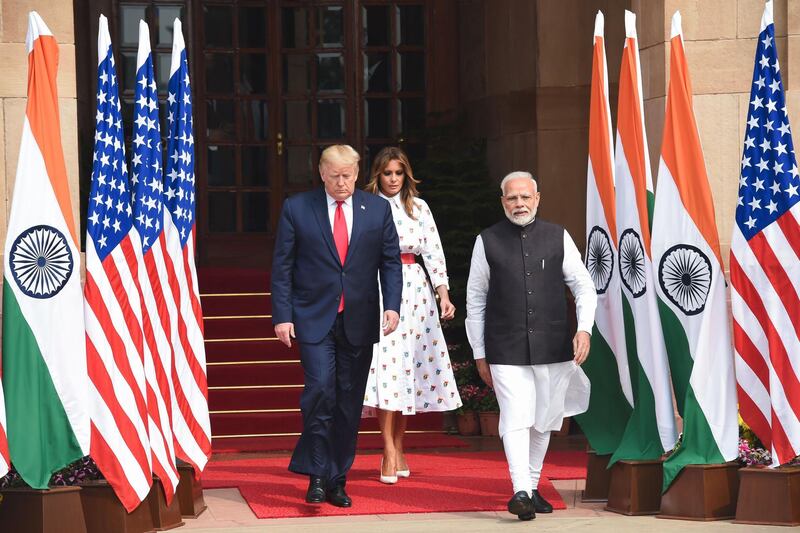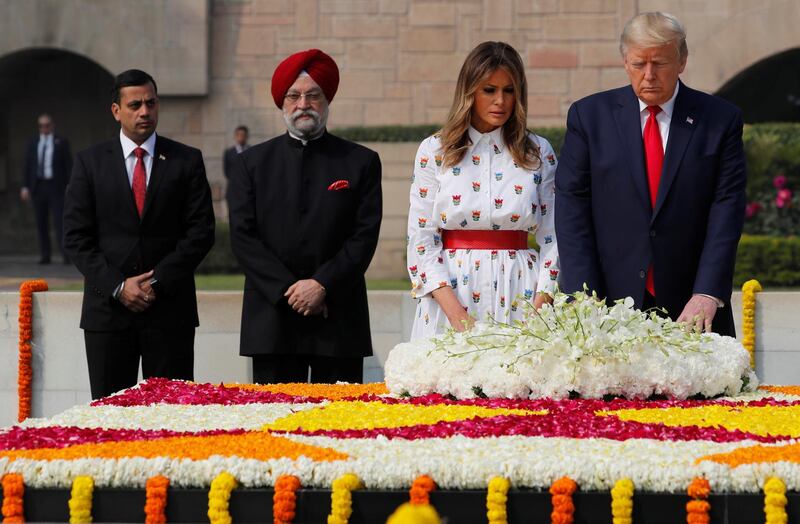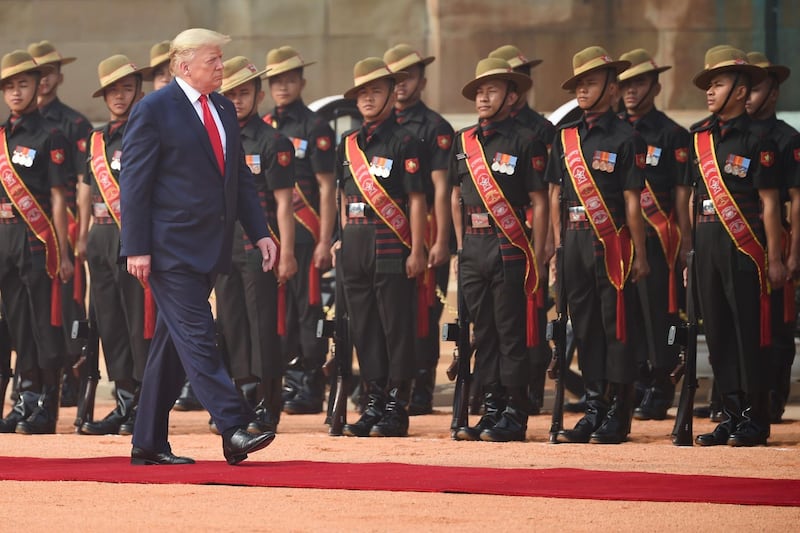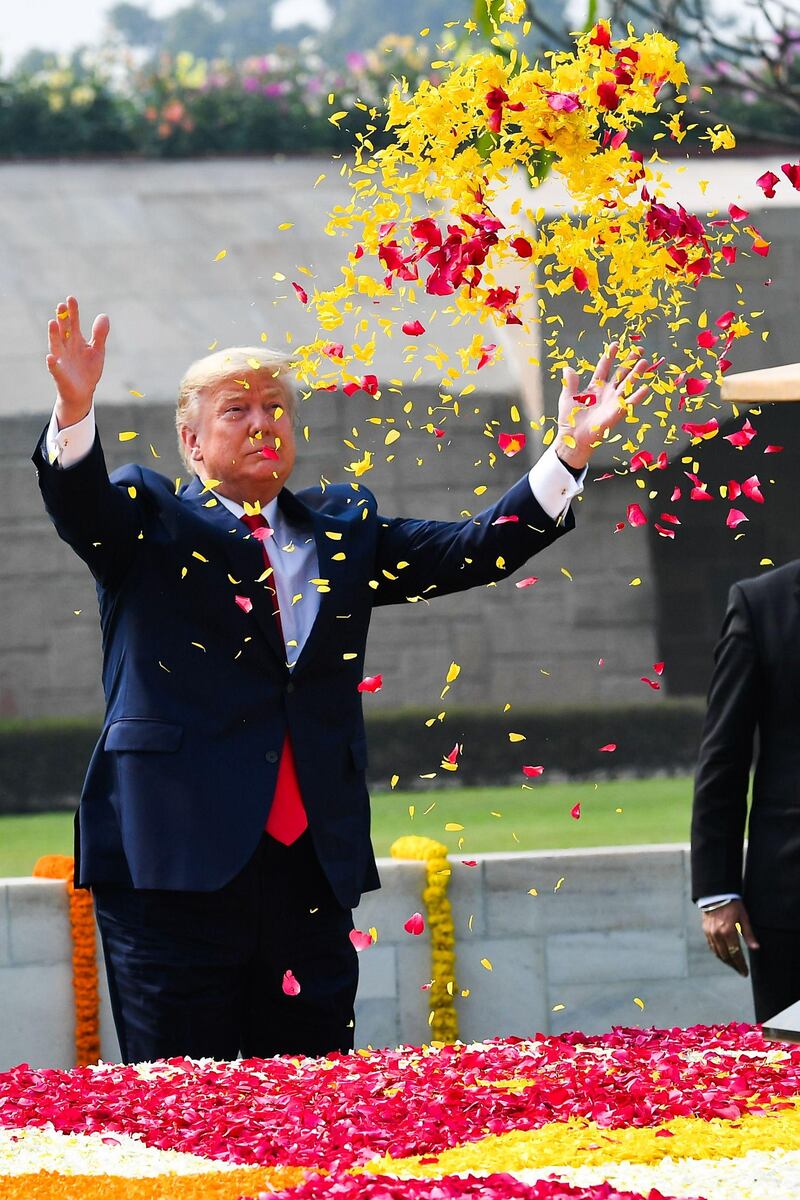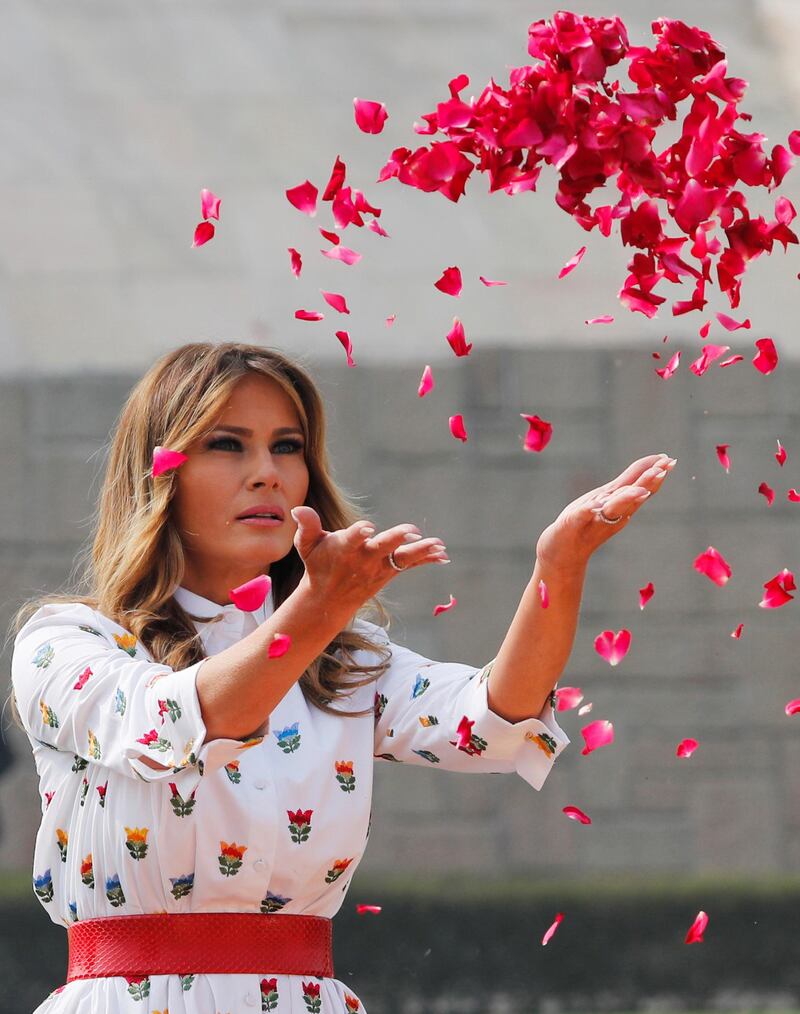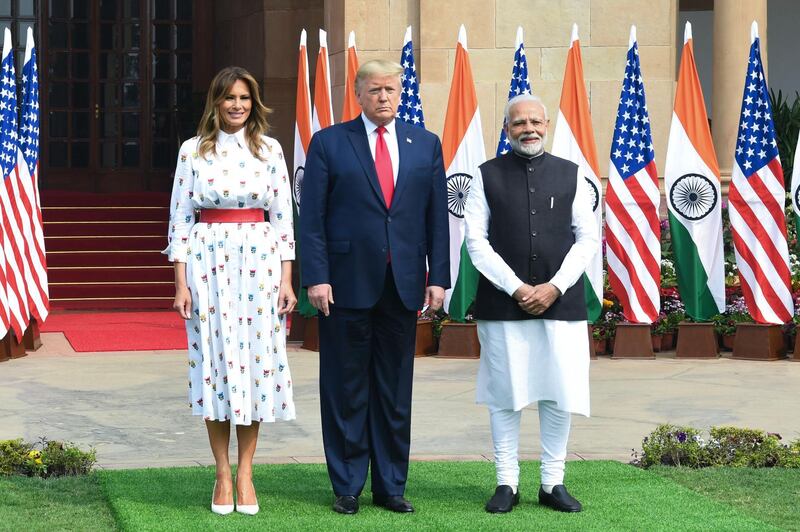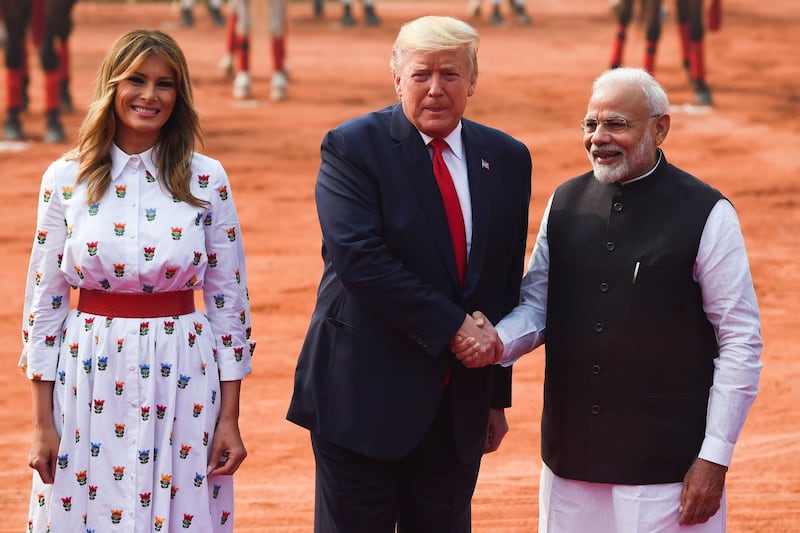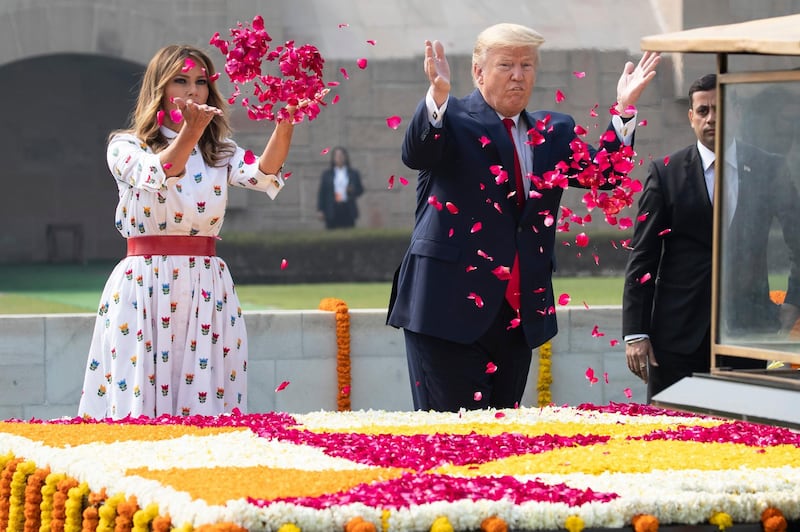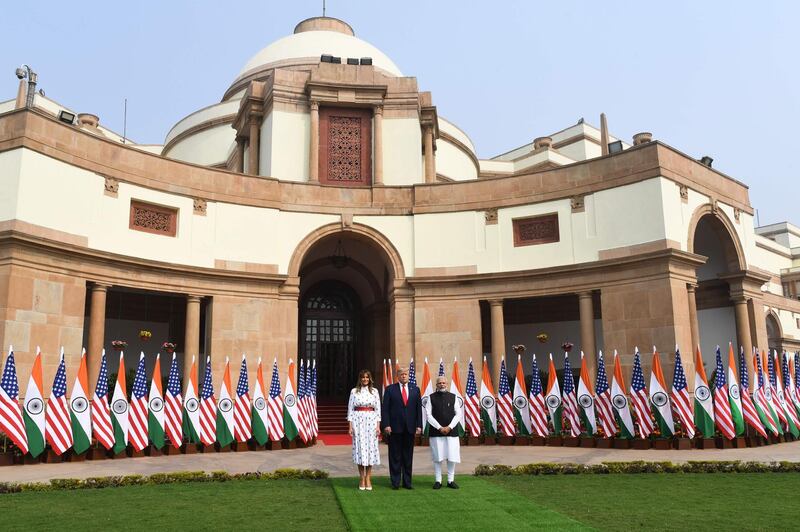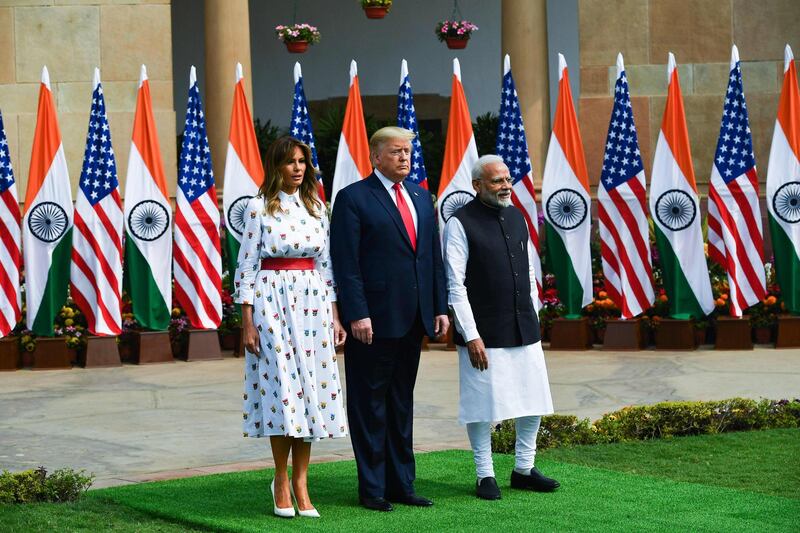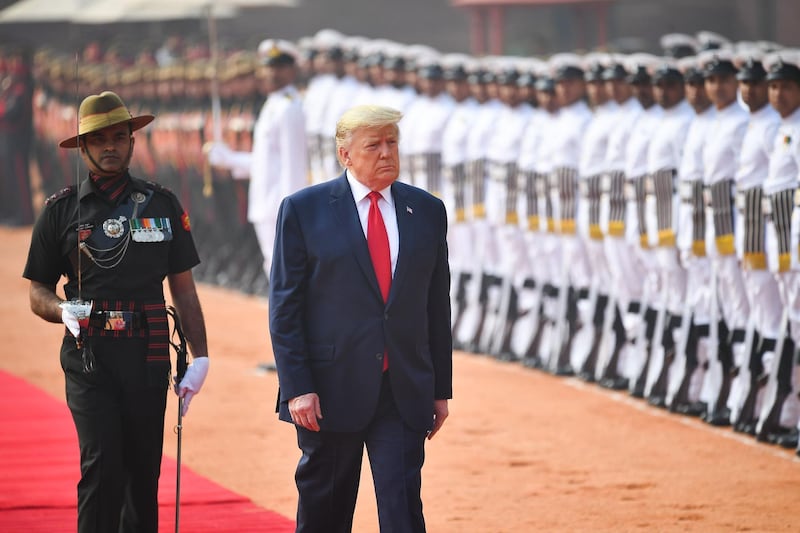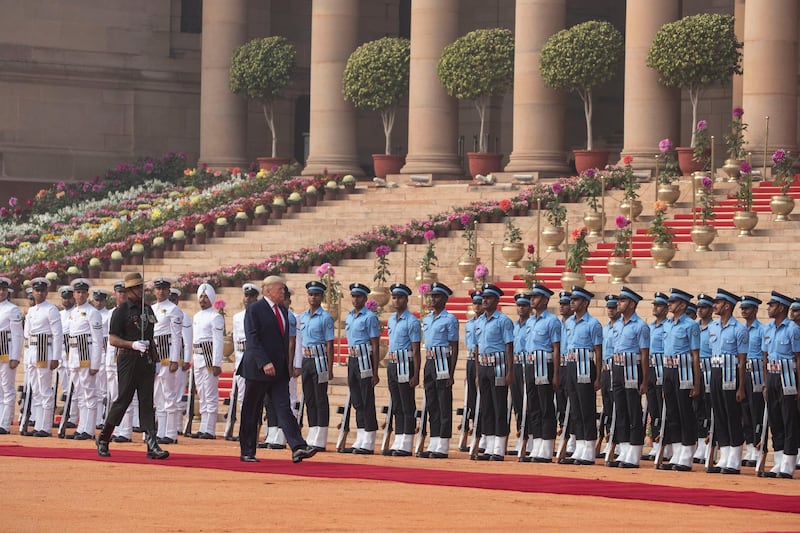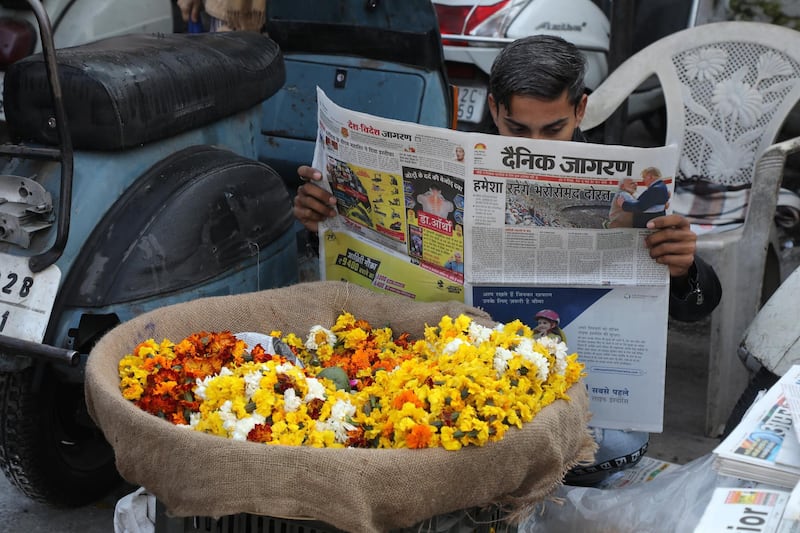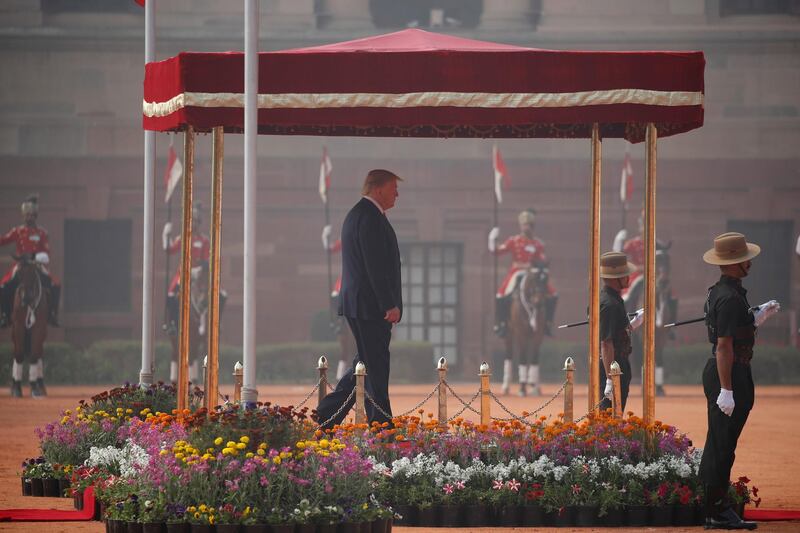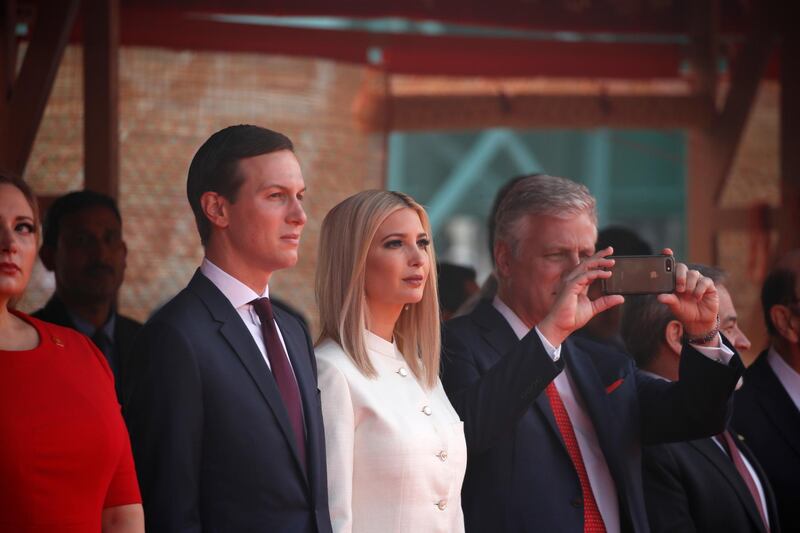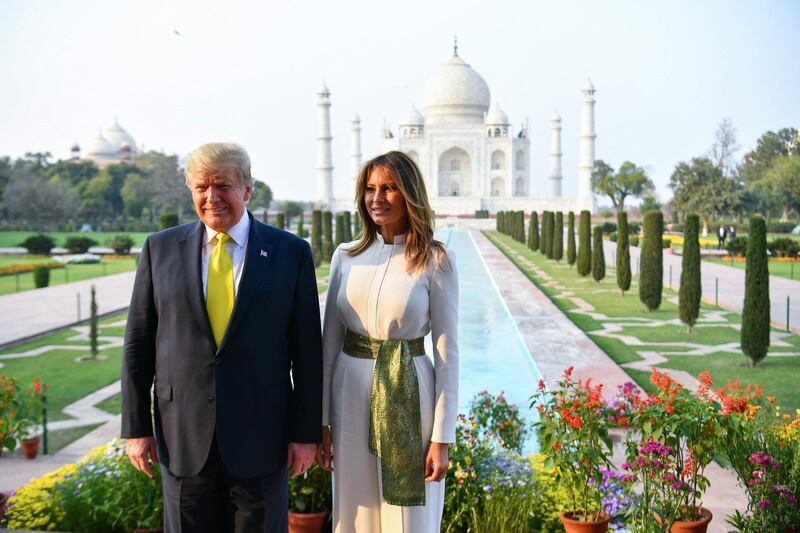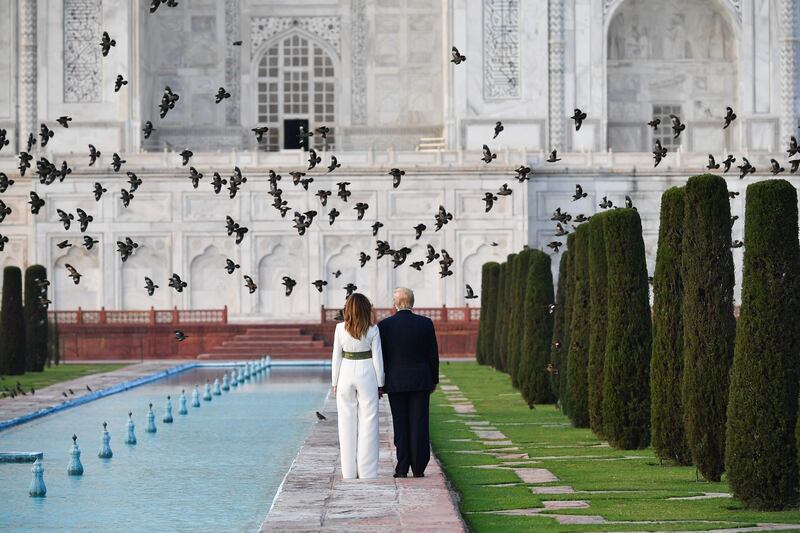As violent protests over a divisive citizenship law gripped Delhi, the US first lady, Melania Trump, was in India's capital attending a nearby “happiness class".
The class was an initiative by the Delhi government that was launched in schools in 2018 and consists of 45 minutes of guided relaxation, such as meditation or mental exercises.
.@FLOTUS will attend happiness class in our school today. Great day for our teachers, students and Delhiites. For centuries, India has taught spirituality to the world. Am happy that she will take back the msg of happiness from our school
— Arvind Kejriwal (@ArvindKejriwal) February 25, 2020
Not far from Ms Trump's class, a second day of citizenship protests turned violent, with local media reporting two people injured in the clashes were brought to Guru Teg Bahadur Hospital on Tuesday afternoon, one of them with a gunshot wound.
As the violent protests were going on in Delhi, a joint press conference was held by US President Donald Trump and Indian Prime Minister Narendra Modi, during which they said progress was made on a "comprehensive trade deal".
In the previous day's citizenship protests, seven people were killed, including one police officer and six civilians, with 150 others injured.
Clashes were reignited this week between supporters and opponents of the citizenship law passed last year, with police using tear gas and smoke grenades and protesters throwing stones in the north-eastern Delhi districts of Maujpur, Chandu Nagar and Kabir Nagar.
On Tuesday, a meeting of government officials was called by India's Minister of Home Affairs Amit Shah to discuss the increasing violence in the capital. During the meeting, officials discussed issues including co-ordination between the government and police, and controlling rumours, according to local news outlet News18.
Mr Kejriwal said the government allowed police to handle the situation, but would call in the army to quell protests if needed.
The Citizenship Amendment Act eases the path to gaining Indian citizenship for various religious groups, but notably excludes Muslims. The law applies to non-Muslims from three neighbouring Muslim-dominated countries, Afghanistan, Bangladesh and Pakistan.
The introduction of the law angered Muslim communities in India, who comprise the second largest religious group in the country.
